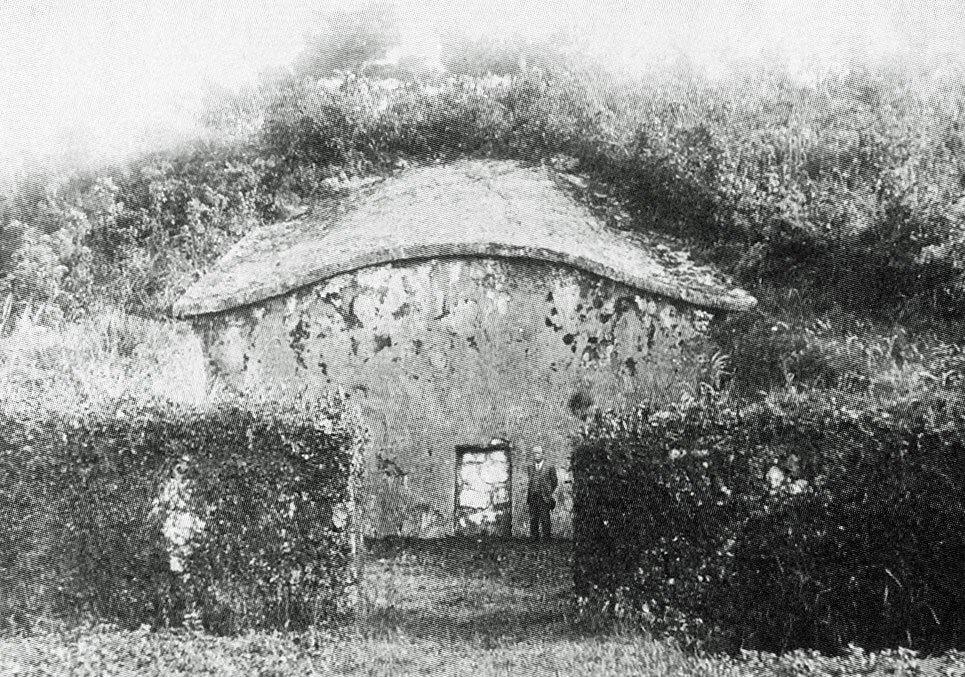|
Noro (priestess)
(, sometimes or ) ( ryu, ヌール, nuuru) are priestesses of the Ryukyuan religion at Utaki. They have existed since at least the beginning of the Gusuku period (late 12th century) and continue to perform rituals even today. They are distinct from (psychics), but are classified as ("godly people"). History According to the and , the first were the daughters of Tentei-shi, who was a descendant of the creation goddess, Amamikyu. The first daughter became the first (), and the second daughter became the first village priestess (). The god of fire gave a piece of fire from Ryūgū-jō to each to create a village hearth, from which each family in the village would take fire to maintain their own family hearths. The maintained the royal hearth. The were charged with conducting official rituals and ceremonies for their respective village. The was charged with conducting rituals and ceremonies on behalf of the entire kingdom, and traveled with the king to Sefa-utaki to worshi ... [...More Info...] [...Related Items...] OR: [Wikipedia] [Google] [Baidu] |
Noro
Noro may refer to: * Noro, Solomon Islands * , in the Cíes Islands, Spain * Noro (priestess), within the Magiri system of the Ryukyu Kingdom in the Ryukyu Islands * "Noro", a song on the 2009 album '' Daisy'' by Brand New People with the surname *, Japanese economic historian * Masamichi Noro, aikido master and founder of kinomichi * , Japanese metallurgist See also * Eisaku Noro Company, a Japanese manufacturer of color-transitioning yarn * Norovirus * Norro (other) Norro may refer to: In Sweden * Norrö, Österåkers Municipality, in Österåker Municipality People * Norro Wilson Norris Denton "Norro" Wilson (April 4, 1938 – June 8, 2017) was an American country music singer-songwriter, produce ... {{disambiguation, surname Japanese-language surnames ... [...More Info...] [...Related Items...] OR: [Wikipedia] [Google] [Baidu] |
Shō Shōken
, also known as , was a Ryukyuan scholar and served as ''sessei'', a post often translated as "prime minister," from 1666 to 1673. Shō wrote the first history of the Ryukyu Kingdom, , and enacted a number of practical political reforms aimed at improving Ryukyu's prosperity and dignity in the eyes of China and Japan. Background Shō Shōken was born as the first son of Haneji Ōji Chōtai (Prince Chōtai Haneji), the third head of Haneji Udun (Palace). Haneji Udun was one of the cadet branches of Royal House. Shō Shōken inherited the position of from Chōtai in 1640, and began compiling the Mirror of Chūzan in 1650, by the orders of the king Shō Shitsu. According to ''Haneji shioki'' (The Directives of Haneji), one of his chief collections of reforms, he was approached in 1666 by a royal messenger, who was sent to offer him the position of ''sessei'' (prime minister). Shō refused, demanding that it was inappropriate for such an important appointment to be conveyed by such a ... [...More Info...] [...Related Items...] OR: [Wikipedia] [Google] [Baidu] |
Ryukyuan Culture
Ryukyuan culture (琉球の文化, ''Ryūkyū no bunka'') are the cultural elements of the indigenous Ryukyuan people, an ethnic group native to Okinawa Prefecture and parts of Kagoshima Prefecture in southwestern Japan. The cultural elements of the Ryukyuans are far from a unified entity, with different islands having their own distinct subculture and practices. Furthermore, the inhabitants of the Tokara and Ōsumi Islands are of Yamato Japanese descent, akin to the inhabitants of mainland Japan. Music There are many styles of music exclusive to the Ryukyu Islands. The most popular one is arguably the genre of eisa from the Okinawa Islands. It typically incorporates dancing, taiko drums and the three-stringed sanshin (Okinawan shamisen). In the Amami Islands of Kagoshima, a musical style known as shima-uta has gained recent popularity in mainland Japan as a result of its usage by contemporary singers. Besides eisa and shima-uta, there are many more traditional styles of Ryu ... [...More Info...] [...Related Items...] OR: [Wikipedia] [Google] [Baidu] |
Religion In The Ryukyu Islands
Religion is usually defined as a social-cultural system of designated behaviors and practices, morals, beliefs, worldviews, texts, sanctified places, prophecies, ethics, or organizations, that generally relates humanity to supernatural, transcendental, and spiritual elements; however, there is no scholarly consensus over what precisely constitutes a religion. Different religions may or may not contain various elements ranging from the divine, sacred things, faith,Tillich, P. (1957) ''Dynamics of faith''. Harper Perennial; (p. 1). a supernatural being or supernatural beings or "some sort of ultimacy and transcendence that will provide norms and power for the rest of life". Religious practices may include rituals, sermons, commemoration or veneration (of deities or saints), sacrifices, festivals, feasts, trances, initiations, funerary services, matrimonial services, meditation, prayer, music, art, dance, public service, or other aspects of human culture. Religions have sa ... [...More Info...] [...Related Items...] OR: [Wikipedia] [Google] [Baidu] |

